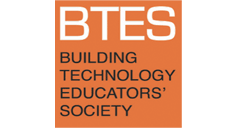Designing Water Self-Sustaining International Projects Using Comprehensive Water Auditing
Abstract
Moyo Community Health Center is a five-acre campus in Moyo, Uganda that currently receives water for its clinics from a neighboring private well and energy from an existing photovoltaic array. With two prominent rainy seasons, Moyo receives over 20 inches of rainfall each year. This paper investigates the potential for rural health centers with limited water supply to become water self-sustaining through rainwater collection, treatment, and use. A group of fifteen architecture; architectural engineering; and water, society, policy students engaged in a semester-long project to complete a water audit for the health center in Moyo from their classroom in Arizona. The audit was comprised of four modules focused on conservation, passive measures, active measures, and process water. Three rounds of community engagement virtual activities with the health center and a supporting non-governmental organization, Pipeline Worldwide, were conducted to obtain building and fixture measurements, occupancy numbers, typical uses, landscape species specifications, and system details from the site. The audit culminated in an integrated net zero water design for the health center. This paper lays out a method for engaging with an international and rural community partner at a distance to offer water auditing services. Overall, Moyo Mission Health Center’s baseline water demand was 570,236 gallons each year. Applying conservation and passive measures, the demand dropped to 376,407 gallons each year. Rainwater harvesting systems with appropriately sized cisterns were designed based on the daily rainfall and existing ten buildings’ roof areas and runoff coefficients to meet this 376,407 gallon demand. The paper concludes that this work is possible with committed and communicative community partners and a clearly structured auditing process. The results from the water audit are presented to illustrate this process. The paper concludes with a discussion of ethical concerns and mutual benefits from the international engagement. As an outcome to the audit and net zero water design, the health center is receiving funding from Pipeline Worldwide to install large cisterns to achieve the self-sustaining water balance.
Keywords: net zero water, international partnerships, rainwater harvesting, rural, auditing
How to Cite:
Crosson, C., (2023) “Designing Water Self-Sustaining International Projects Using Comprehensive Water Auditing”, Building Technology Educators’ Society 2023(1). doi: https://doi.org/10.7275/btes.1960
Downloads:
Download PDF
499 Views
156 Downloads
